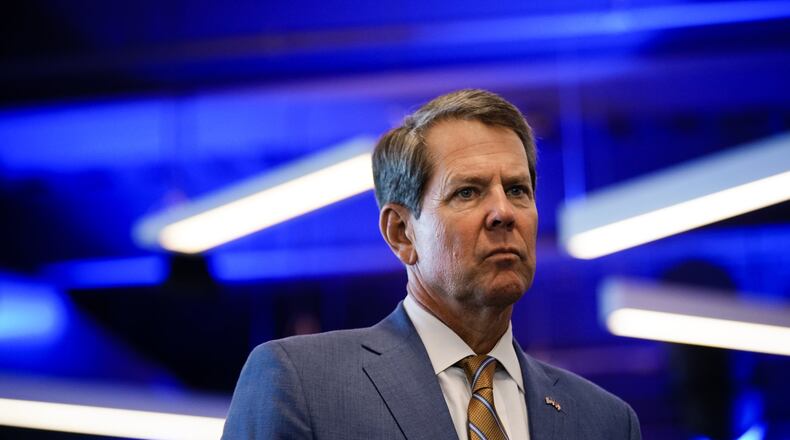Brian Kemp arrived in the governor’s office 10 months ago with no history as an education advocate. In his first year in office, he wooed teachers with a pay raise, but dismayed public education supporters with his embrace of a school choice bill that would use taxpayer money to send students to private schools.
The Senate rejected Senate Bill 173 in March, in part because it was predicted to eventually cost as much as half a billion dollars annually. However, the bill enjoyed the backing of both Kemp and Lt. Gov. Geoff Duncan, suggesting Georgia will likely continue to see a push for a greater diversion of tax dollars to private schools.
Georgia already has vouchers that allow students in special education to attend private schools, and a private school funding program in which taxpayers "contribute" money to designated private schools through nonprofit organizations and see their money returned in a state tax credit. The loser is the state treasury, which collects less tax dollars as a result of those generous tax credits.
This month Kemp continued his campaign to win over teachers, holding three listening sessions with State School Superintendent Richard Woods. About 400 teachers and counselors met with the governor during sessions at Georgia Gwinnett College, Valdosta State University, and the University of North Georgia.
The themes were improving the teacher pipeline, eliminating teaching barriers in the classroom, and creating better learning environments. (You can read my AJC colleague Ty Tagami's account of one of the sessions here.)
"Hearing directly from Georgia educators is vital to the continued success of education in our state," said Kemp in a statement released today.
"Our teachers and counselors do invaluable work every day, and I appreciate their willingness to share ideas, questions, and concerns with state leaders during this listening tour. By working together, we will ensure that they are equipped to succeed in the classroom and on campus. My office, along with Superintendent Woods and the Department of Education, will continue to prioritize education in Georgia and put students first," he said.
“Talking directly with hundreds of Georgia teachers about their experiences in the classroom was powerful,” said State School Superintendent Richard Woods in today’s statement. “What’s also powerful is having a governor who prioritizes spending time with, and truly listening to, these educators.”
Kemp has to do more than listen and nod his head as teachers share their concerns about the future of the profession and the conditions of the classroom. The governor has to make policy decisions that reaffirm Georgia’s commitment to public education and to the importance of developing and retaining a well-trained teacher workforce.
During the listening sessions, Kemp and company heard that two out of three teachers in Georgia would not recommend teaching as a profession.
A 2017 American Federation of Teacher quality of life survey found a higher-than-average percentage of Georgia teachers reported feeling stressed in their jobs. While 61%, of educators nationwide found work "always" or "often" stressful, the rate was 76 among Georgians.
The reasons that Georgia teachers give for their dissatisfaction and stress echo what teachers nationwide cite:
Too many mandated tests that hold too much sway over how students, teachers and schools are judged.
Policy and practice decisions made without the input of teachers.
Too many duties and responsibilities being added to teacher's roles beyond teaching.
Too little pay and compensation for what is now being expected in the job.
Too little respect from the public and policymakers.
A troubling inconsistency exists between Kemp’s political agenda and his teacher listening sessions. It will be hard to rebuild public education, which lost crucial ground during and after the Great Recession, while seeking new laws that would divert millions of dollars to private entities.
More than nine out of 10 children in Georgia attend public schools. You would hardly have gleaned that from the education priorities of Kemp and his legislative proxies this first session -- easing the flow of students and tax dollars out of public schools.
About the Author
Keep Reading
The Latest
Featured


